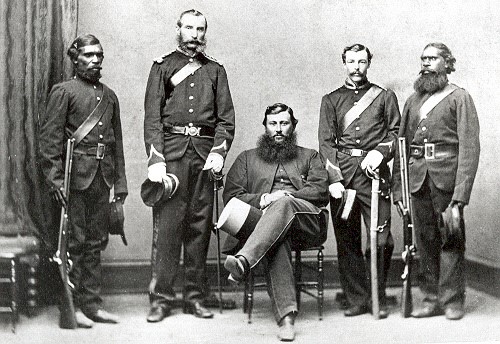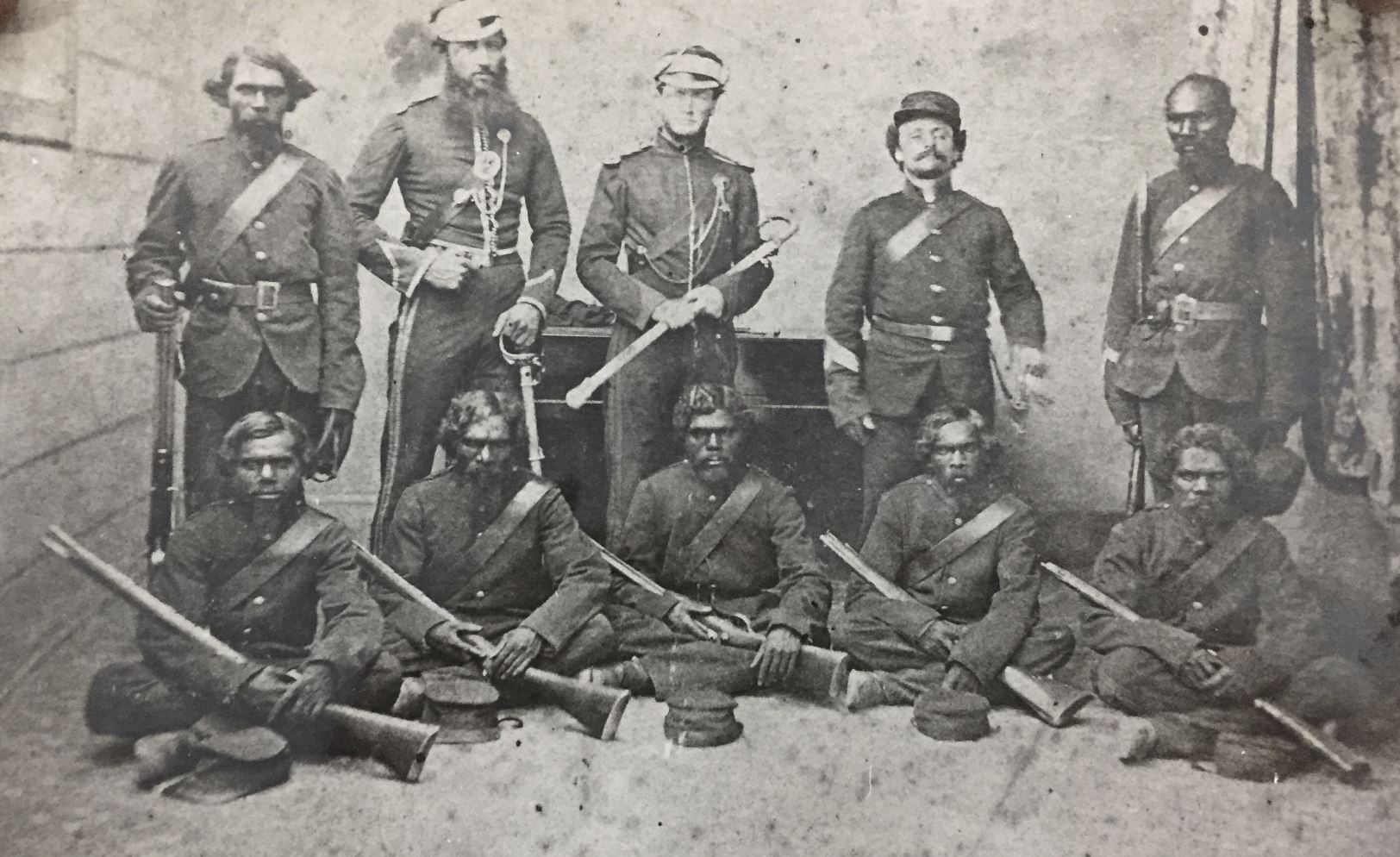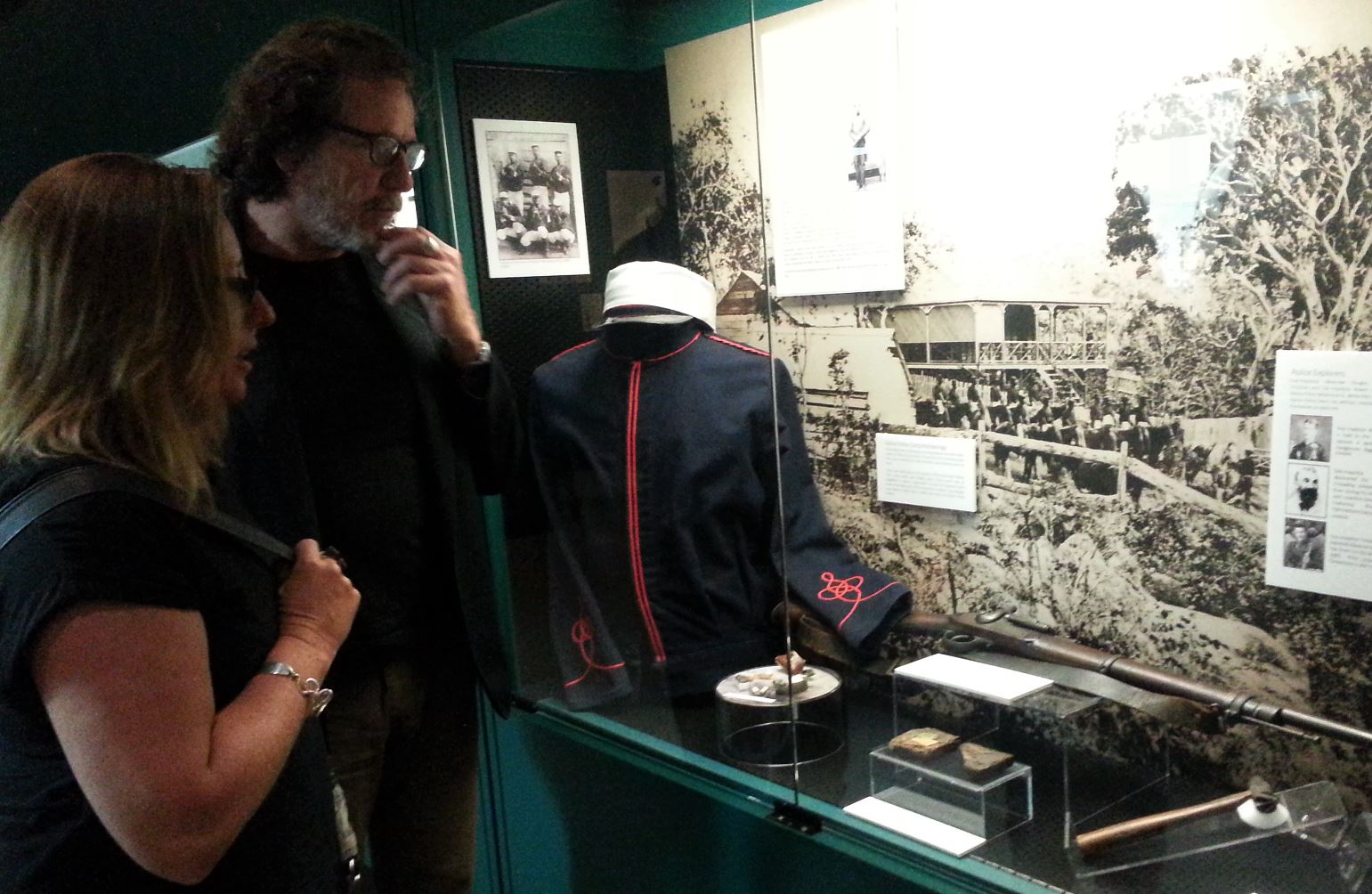
Hundreds of Aboriginal men who became native mounted police in colonial Australia carried a significant burden of responsibility for law and order for white settlers in Queensland and other settlements.
A long-running ARC-funded archaeology project has turned the lens on the recruitment to the Queensland Native Mounted Police and their part in the violent 'frontier wars' - creating long-term traumatic impacts on the lives of the Indigenous people involved.
"We argue that the massacres, frontier violence, displacement, and the ultimate dispossession of land and destruction of traditional cultural practices resulted in both individual and collective inter-generational trauma for Aboriginal peoples," says Flinders University Professor Heather Burke in a new article published in the Journal of Genocide Research
"Despite the Australian frontier wars taking place over a century ago, their impacts continue to reverberate today in a range of different ways, many of which are as yet only partially understood."
Professor Burke, and Queensland researchers, say official records show of the history of the Queensland Mounted Police in terms of its development, its white officers, some day-to-day operations of the force, and how many people were killed during the frontier wars.
The article looks at the ongoing psychological impacts of the historical dispossession and frontier violence.
Based on more than four years of research, the Archaeology of the Queensland Native Mounted Police project combined historical records, oral and historical evidence from a range of sites across central and northern Queensland to understand more fully the activities, lives and legacies of the native police.
It strives to present an alternative perspective on the nature of frontier conflict during Australian settlement, in order to initiative new understandings of the Aboriginal and settler experience, and contribute to global studies of Indigenous responses to colonialism.
The article 'Betwixt and Between: Trauma, Survival and the Aboriginal Troopers of the Queensland Native Mounted Police' (March, 2020) by Heather Burke, Bryce Barker, Lynley Wallis, Sarah Craig and Michelle Combo has been published in the Journal of Genocide Research (Taylor & Francis Online) DOI: 10.1080/14623528.2020.1735147
 Background:
Background:
The Queensland Native Mounted Police was organised along paramilitary lines, consisting of detachments of Aboriginal troopers led by white officers. It covered the whole of Queensland, including 170 camps, and was explicitly constituted to protect the lives, livelihoods and property of settlers and to prevent (and punish) any Aboriginal aggression or resistance.
This was often accomplished through violence in many forms, leading Australian historian Henry Reynolds to characterise the NMP as "the most violent organisation in Australian history".
The project's new publicly available national database covers the 50-year history of the Queensland Native Mounted Police (1849-1904) and stories of many of the 800 troopers and 400 officers. It is the only publicly available historical and archaeological dataset of their lives and activities. The excavations conducted over the past four years were the first archaeological investigations of any native police force operating anywhere in Australia.







